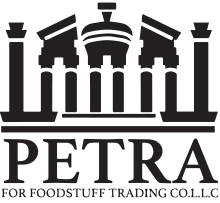Agriculture & Environmental Industry
AGRICULTURE EXTENSION TRAINING
The training of agricultural extension workers is an integral part of the overall agricultural production process. with useful and practical information for increased agricultural production.
CLIMATE SMART AGRICULTURE
In many parts of the globe food security risks are caused by poor agricultural practices, inadequate infrastructure, labour instability, weak market linkages, limited access to finance, and other issues. Impacts of climate change further exacerbate these constraints and challenges.
Climate Smart Agriculture (CSA) works to enhancing the capacity of the agricultural systems to support food security. CSA technologies can reduce climate risks and can address climate change through mitigation measures, while at the same time increase agricultural profitability.
FOOD SAFETY
The handling, preparation, and storage of food in ways that prevent foodborne illnesses. Number of routines are included and international standards should be followed to avoid potentially severe health hazards and to ensure food quality.
We work to improve traceability of food and provide policy advice on food safety, risk management and veterinary controls.
FOOD SECURITY & NUTRITION
According to the Food and Agriculture Organization (FAO), food security is based on four pillars. Pillar 1, food availability, is mainly fostered by agricultural methods leading to an increase in agricultural production and productivity. Pillar 2, the access to food is supported, among others, by price and market incentives, and the modernization of infrastructure, such as roads, markets, and storage systems. The third pillar of food use refers to nutritional aspects, such as the adequate preparation of dishes in the household and a balanced diet for all household members. The last pillar refers to the year-round stability of the three pillars above, in particular during seasons when food becomes limited on the market (which is often at the end of the dry season).
The rehabilitation and development of agricultural production systems should work to enhance food security, by supporting poor farmers in adapting and diversifying their production systems to become more resilient to adverse conditions
PUBLIC PRIVATE PARTNERSHIP
Public Private Partnerships (PPP) have grown in importance throughout recent years in the agriculture sector. A successful PPP brings together the public sector with private sector companies from both developed and developing countries with the aim of mutually sharing knowledge, boosting investment, and developing sustainable business relationships.
POLICY ADVICE
Agriculture policy advice and reform projects, That include legal framework, formulation and dissemination of agricultural strategies and support to private sector investments.
As well as different support concepts used by international donor organizations: sector approach, program-based approach, sector budget support. To ensure partner governments’ ownership of development policy, strategy and spending. These approaches, create single comprehensive programs and budget frameworks, plus coordinating donor engagement.
Supporting the creation of Public Private Dialogue (PPD) platforms, which aim at development a constructive exchange between the parties providing technical information, plus generating ideas on how to further develop and improve the countries’ performance.
MARKETING & TRADE
Marketing strategy advice includes customized solutions for agribusiness marketing, support for international trade fairs, study tours, sector studies, etc.
Selling products on highly saturated marketplaces such requires a consequential orientation towards consumers' demands. The successful introduction of a product reflected by conception of this product according to the consumers' ideas, then upstream procedures of transport, storage, processing and production.
Covering all other aspects as well, from logistics to the production level. Plus supporting the provision of market infrastructure, including street and wholesale markets.
As well as providing services and transitional support in trade promotion and trade finance.
VALUE CHAIN APPROACH
Value chain analysis and competitive assessment by development of the agro-value chains worldwide, through supporting producers, establishing producer organizations, improving market structures, and supporting the introduction of quality management systems in international standards.
